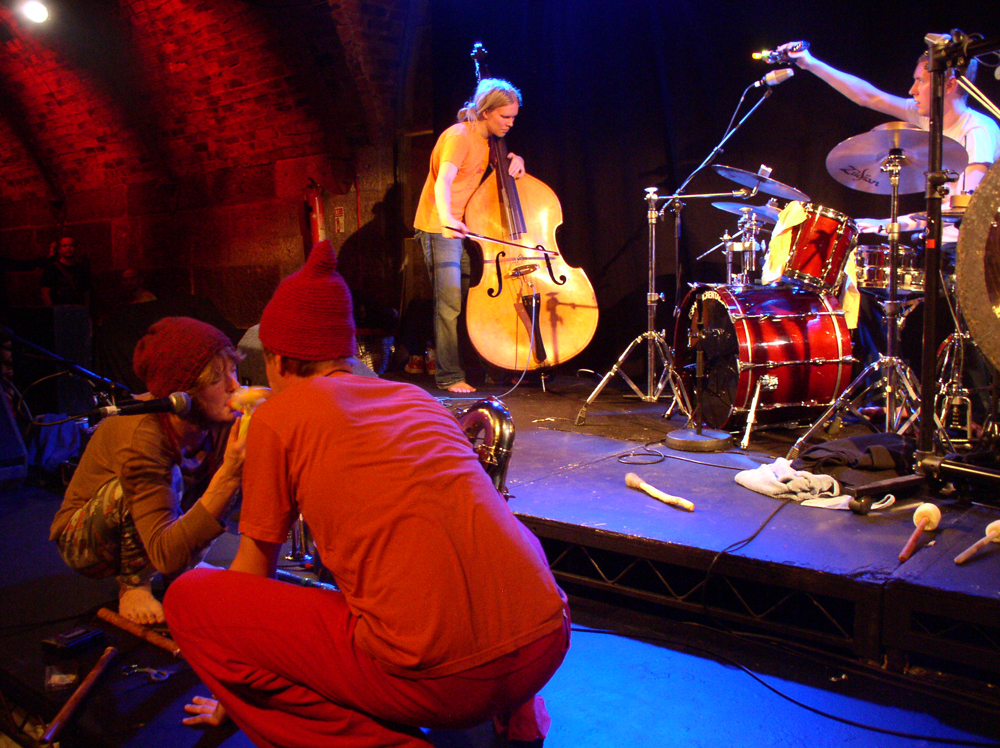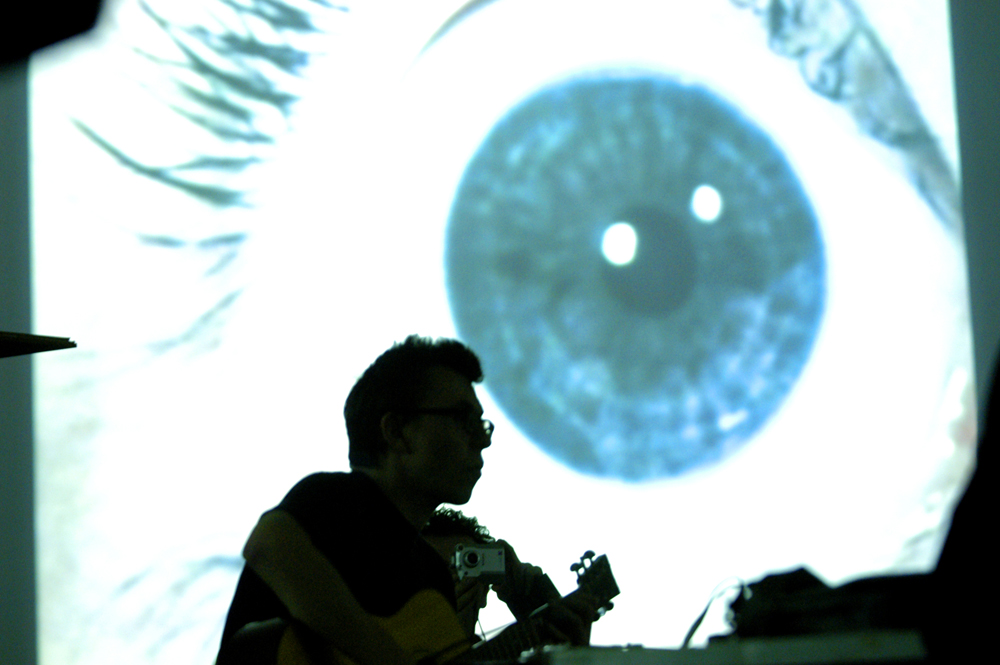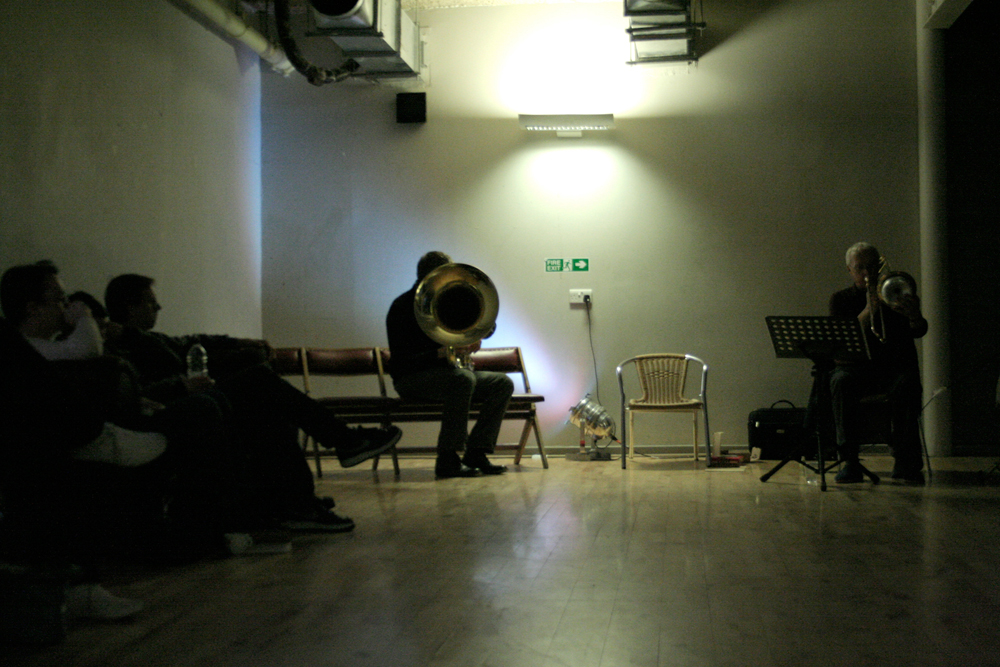
Shadowed Spaces Glasgow
Sean Meehan Tamio Shiraishi Ikuro Takahashi
A recording session for BBC Radio Scotland under the M74 ‘Ski Jump’ extension ramp, a secion of motorway that doesn’t go anywhere, one of several such structures that populate the motorway system in the centre of Glasgow.












